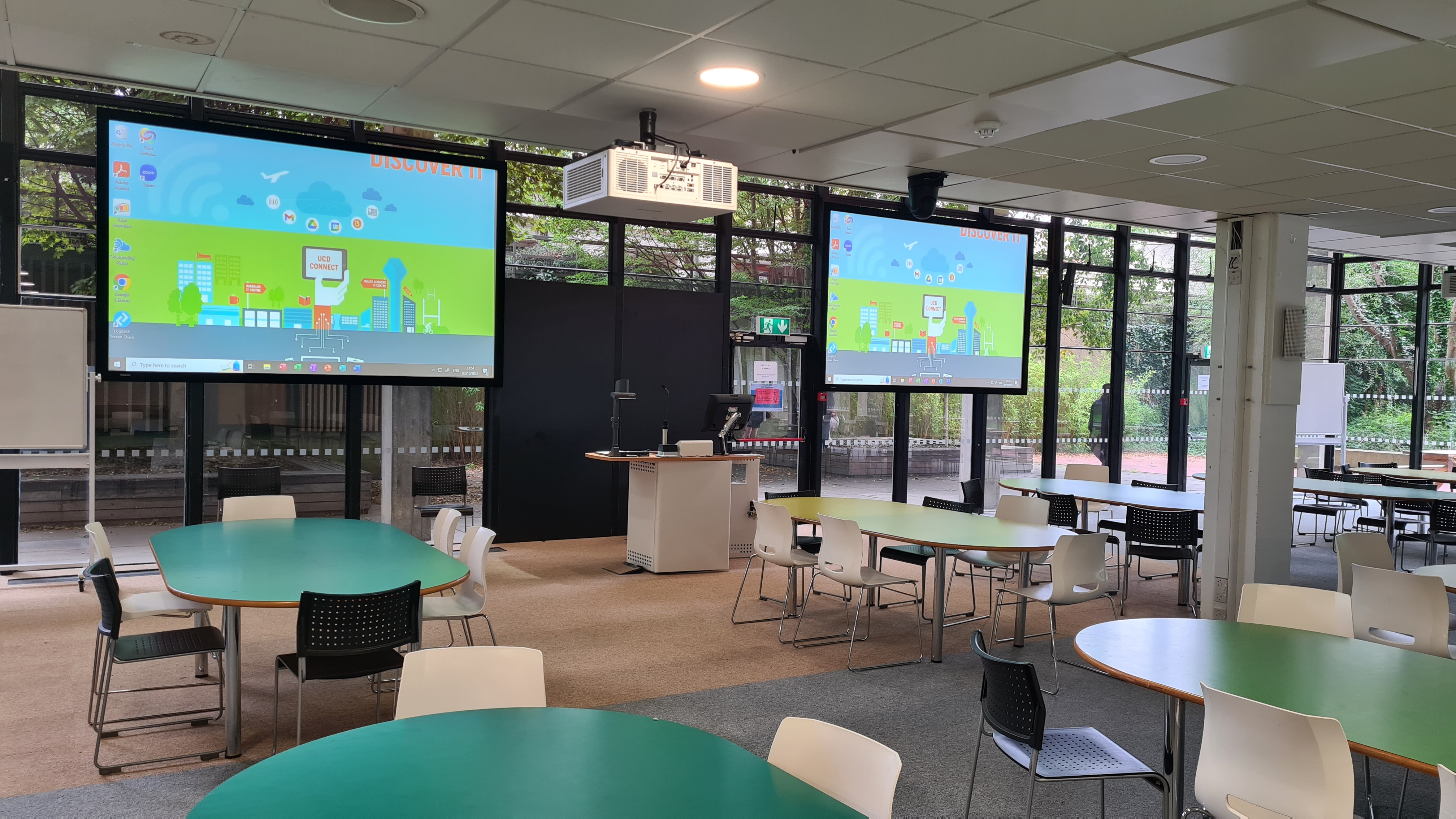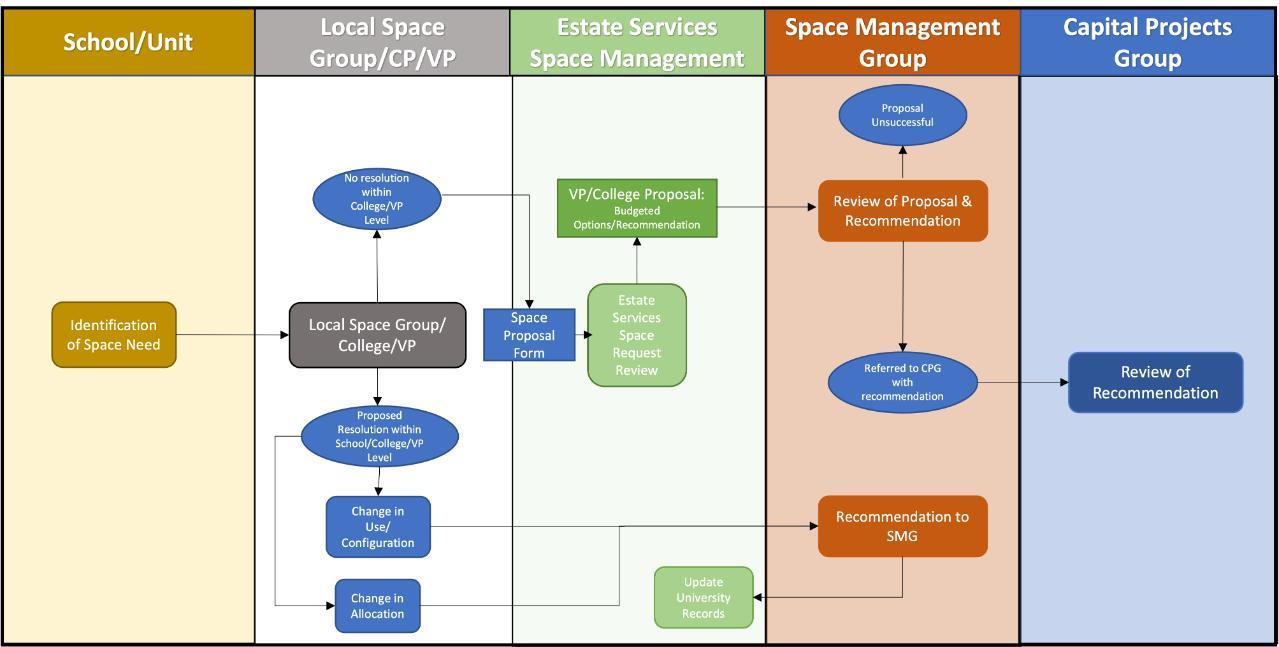Proposals that involve the types of change set out below must be submitted to SMG at space.management@ucd.ie for consideration and decision using a Space Proposal Form (see Appendix 3).
A College Principal/VP must approve proposals for changes relating to space within their College/School/Unit allocation prior to submission to SMG. As space on campus is a finite resource, proposals from a number of Schools/Units for alternative uses of spaces may be considered.
- Reconfiguration of Existing Space: Units/individuals preparing proposals for reconfiguration of/alterations to a College/School/Unit’s existing space allocation to improve space use/functionality must consult with space.management@ucd.ie before any proposal is submitted to SMG for consideration. Please note that in line with the UCD Space Policy, subdivision of space should be minimised to ensure greatest flexibility in use.
- Change in Use of an Existing Space: Prior to submission of any proposals for change of use of existing space (e.g. co-work office space to individual office space) the proposal should first be considered and agreed at a local level by a local space group/College Principal/VP.
- Space requests that have not been resolved at a local level: Where it has not been possible to resolve the issue via the local college space management process, College Principals/VPs can submit a proposal to the SMG.
- Change of use of teaching space, whether shared or non-shared: Any proposals to change the use of teaching spaces, whether shared or non-shared, must be submitted to SMG for decision.
- Allocation of Space to a Third-Party: In line with the University Space Policy, all proposals for allocation of space to third parties must receive approval from the University Management Team (UMT) following consideration and recommendation by the Capital Projects Group (CPG). Proposals for allocation of space to third parties should be submitted to space.management@ucd.ie for consideration by the SMG in the first instance. The proposal’s alignment with University Strategy and University Space Policy will be considered and a recommendation forwarded to CPG for review.
Significant changes or those impacting on the Estates Strategy may be forwarded by the SMG to the Capital Projects Group (CPG) for review and decision.
Reporting
The nominated administrator of the group must submit the following to the space management group, as required, via space.management@ucd.ie :
- Minutes/reports from all local space group meetings should be submitted to the Space Management Group for information.
- Recommendations by local space groups pertaining to any changes in space use/utilisation/allocation, configuration or access. A proposal relating to the recommendation should be included as necessary.
- In line with the University Space Policy, dormant/excess space (not in use for periods of 3 months+) should be made available for reassignment to other schools and units which have immediate need. Local space groups should notify the Space Management Group as soon as possible.
- Space Proposals (see next section).



